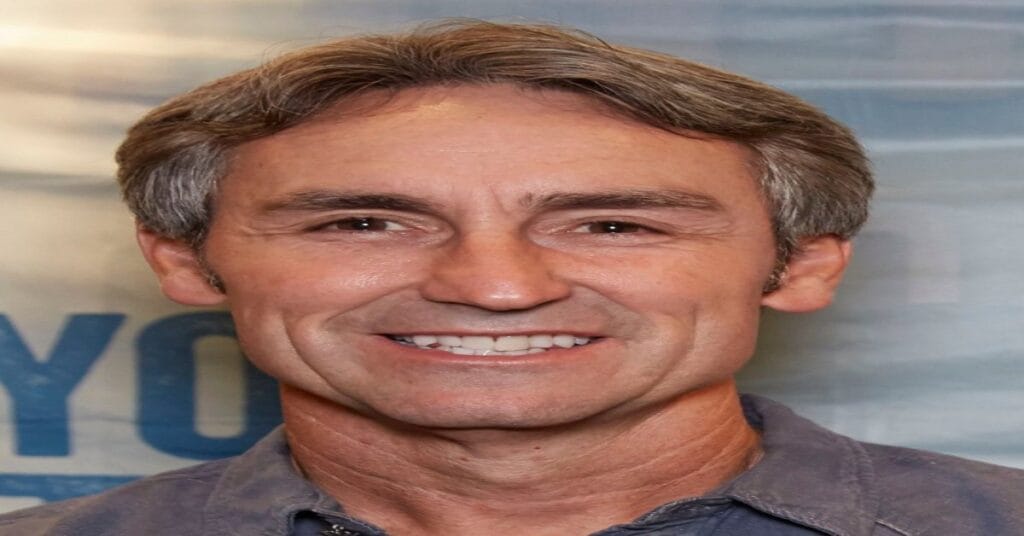If you’ve ever watched American Pickers, you know Mike Wolfe as the guy with an eye for dusty barns, rusty motorcycles, and neon signs most of us would’ve driven past without a second thought. But here’s what a lot of folks miss: his real passion isn’t just buying and selling antiques. It’s something much bigger something that hits on heritage, community, and the very soul of small-town America.
And honestly? That’s what makes his “passion project” so fascinating. It’s not about chasing TV fame anymore. It’s about reviving places that most people forgot existed, turning relics into stories, and spaces into experiences.
Mike Wolfe passion project Let’s break it down.
What Exactly Is Mike Wolfe’s Passion Project?
At first glance, you might think it’s just an extension of picking finding old stuff, fixing it up, reselling it. But nope, it’s deeper.
Core Mission: Preservation with Purpose
The heart of Mike Wolfe’s passion project is historic preservation. We’re talking about old gas stations, 100-year-old storefronts, rural barns, roadside diners places that once buzzed with life and now sit abandoned. Instead of letting them rot, he restores them and reimagines their purpose.
Sometimes they become guesthouses, sometimes community gathering spaces, sometimes even restaurants or shops. The idea is simple: preserve the bones, revive the spirit.
Storytelling First, Profit Second
Mike doesn’t look at antiques or architecture as just “stuff.” He looks at them as stories. That rusted neon sign? It’s not just a decoration, it’s a memory of a roadside diner where generations ate. That barn wood? It’s decades of family labor embedded in planks.
And when he restores, he’s not aiming for sterile perfection he wants to keep the scars, the wear, the imperfections. Because that’s where the stories live.
Why This Project Matters: The Heart Behind It
I’ll be blunt lots of people “restore” things for the sake of flipping or cashing in. What Wolfe’s doing is different. Here’s why.
Reviving Small-Town America
Take Columbia, Tennessee, for example. Once a quiet spot most folks bypassed on their way to Nashville, it’s now buzzing. Why? Because Mike took an abandoned Esso gas station and transformed it into “Revival” a place with fire pits, pergolas, live music, and food.
It didn’t just bring in tourists it gave locals a place to be proud of again. A town square vibe, but with history baked into the walls.
And it wasn’t easy. He reportedly sunk around $38,000 into the project, hit permit issues, failed inspections, and dealt with the kind of bureaucracy that would’ve made most people throw in the towel. But he pushed through. That grit? That’s what makes it real.
Preservation Over Profit
If this were just about money, Mike Wolfe would’ve stayed focused on his stores. Antique Archaeology in Nashville was pulling in close to $900,000 a year in revenue. Yet in April 2025, he shut it down. Why? Because, in his words, he wanted to slow down, be with family, and focus on meaningful projects.
That’s not the move of a guy chasing dollars. That’s someone choosing legacy over profit.
Craftsmanship and Community
Another big piece is the hands-on artistry. Wolfe doesn’t just bring in contractors and call it a day. He involves local craftspeople metalworkers, woodworkers, sign painters so the project lifts up more than just the building. It lifts up people.
That’s how you turn a restoration into a ripple effect. The end result isn’t just a prettier building it’s a stronger community economy and a sense of pride that money alone can’t buy.
Real-Life Examples of the Passion Project
Let’s put some flesh on the bones with actual projects.
- LeClaire, Iowa – This was Wolfe’s first big experiment. He opened Antique Archaeology and later Two Lanes Guesthouse, which drew fans, boosted tourism, and put LeClaire on the map as a heritage travel destination.
- Columbia, Tennessee – Between Revival, Columbia Motor Alley (a bike shop), and a restored guesthouse, Wolfe has turned the downtown area into a hub of activity. Locals now describe the town as “alive again.”
- Nashville, Tennessee – The closing of the Nashville Antique Archaeology shop (after 15 years) wasn’t a failure—it was a shift. By stepping back, Wolfe made space for new community-driven projects and future storytelling ventures.
- Rural Projects – Beyond big towns, he’s also worked in smaller places like Greenville, Kentucky, proving this model isn’t just for touristy hotspots.
Looking Ahead: The Future of Wolfe’s Vision
So, where does all this lead? Here’s where the passion project seems to be headed.
Expanding the Footprint
Mike Wolfe’s approach in Columbia is becoming a template. More towns are looking at their own abandoned buildings and thinking, “Could we do this too?” The future isn’t just Wolfe restoring towns it’s him inspiring other people to copy the model.
Heritage Tourism as an Economic Engine
It’s not just about nostalgia. Heritage tourism is real money. Travelers want authentic experiences, not cookie-cutter hotels. By staying in a guesthouse that used to be a general store, or eating at a restaurant inside an old gas station, visitors get that authenticity—and towns get the revenue.
Media & Storytelling
Wolfe’s also working on a new docuseries, “History’s Greatest Picks with Mike Wolfe”, where he dives into the stories behind these historic treasures. Pair that with his Instagram behind-the-scenes clips, and you’ve got a storytelling machine that inspires others to value preservation.
Workshops & Education
While it’s not official yet, many fans (myself included) suspect Wolfe’s next step could be workshops teaching people the craft of restoration. Imagine a weekend retreat where you learn brick masonry, vintage sign restoration, or metalwork in a building that was itself rescued from decay. That’s the future.
Why It Hits Different
Here’s why Wolfe’s passion project stands out from the dozens of “restoration” movements out there.
- Cultural Heritage Lives On – It’s not just storage of history it’s history you can walk through, touch, and use.
- Boosts Local Economies – Revived towns see new businesses, more tourism, and better local pride.
- It’s Emotional – For locals, seeing their grandparents’ old gas station turned into a thriving café is deeply personal.
- It’s Replicable – This isn’t a one-off celebrity project. It’s a model others can try in their own communities.
FAQ
Q: Is this just a hobby for Mike now?
Nope. This is his second career. The TV show made him famous, but this is what’s giving him purpose.
Q: Why did he close the Nashville shop?
In April 2025, after 15 years, Wolfe shut it down to focus on family and meaningful projects. It wasn’t a business failure it was a conscious lifestyle choice.
Q: Can regular people get involved?
Absolutely. You can visit his projects, attend events, or even start something in your own town. That’s the beauty it’s not just Mike’s project, it’s a blueprint.
Q: Isn’t there criticism about antique prices?
Yeah, some folks complain about high markups like that $10K pinball machine. But at the end of the day, antiques aren’t commodities; they’re art, memory, and rarity rolled into one. Price is always subjective.
Final Thoughts
Mike Wolfe’s passion project isn’t about fame or fortune. It’s about something more rare these days: caring about legacy. From LeClaire to Columbia, he’s showing how forgotten buildings can be anchors for revival, how antiques can tell living stories, and how small towns can find new life in old bones.
It’s messy, it’s emotional, it’s not always perfect and that’s exactly why it matters. Because history, like people, is most beautiful when it’s real.



